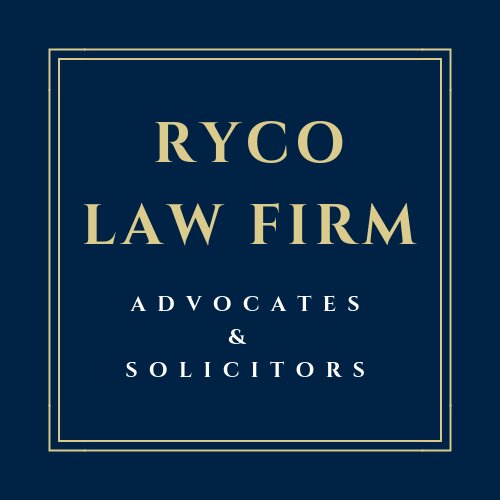Best Brokerage Lawyers in Kota Kinabalu
Share your needs with us, get contacted by law firms.
Free. Takes 2 min.
Free Guide to Hiring a Real Estate Lawyer
List of the best lawyers in Kota Kinabalu, Malaysia
About Brokerage Law in Kota Kinabalu, Malaysia
Brokerage law in Kota Kinabalu, Malaysia, is an area of legal practice that involves the various regulations and legal requirements governing brokerage activities within the city and the broader region of Malaysia. This field encompasses legal matters related to real estate transactions, insurance policies, stock and investment brokerage, and other similar businesses that facilitate transactions on behalf of clients. The brokerage industry in Malaysia is regulated by a range of statutes and is subject to supervision by several governmental bodies to ensure fair practice and consumer protection in the field.
Why You May Need a Lawyer
There are several common situations where individuals and businesses might require legal assistance in handling brokerage matters in Kota Kinabalu:
- Real Estate Transactions: Buying or selling property often requires contractual agreements, adherence to local laws and regulations, and complex financial arrangements, necessitating legal advice.
- Investment Disputes: When disputes arise regarding stock or other investment transactions, legal guidance can help in resolving issues pertaining to misrepresentation, fraud, or breach of contract.
- Insurance Claims: Brokerage lawyers can assist in navigating the complexities of filing insurance claims and disputes over coverage or policy terms.
- Business Brokerage: Buying or selling businesses involves intricate legal processes, including the valuation, taxation, and adherence to commercial law where legal guidance is crucial.
- Compliance Issues: Businesses must comply with local brokerage laws and regulations. Legal advice can assist in ensuring compliance and avoiding penalties.
Local Laws Overview
Understanding the key aspects of local laws relevant to brokerage in Kota Kinabalu is vital. Some of the central legal elements include:
- National Land Code: Governing property transactions, this code outlines property rights, ownership transfer procedures, and land use regulations.
- Capital Markets and Services Act 2007 (CMSA): This act regulates the securities and futures market in Malaysia, outlining the duties and responsibilities of brokers.
- Insurance Act 1996: Regulates insurance and reinsurance, setting out legal requirements for insurance brokers working within the region.
- Consumer Protection Act 1999: Protects consumer rights against unfair trade practices, impacting brokerage dealings with individuals.
- Contract Act 1950: Governing all contracts within Malaysia, this act applies to agreements made between brokers and their clients.
Frequently Asked Questions
What is the role of a broker in a real estate transaction in Kota Kinabalu?
A broker acts as an intermediary between buyers and sellers, providing market insights, coordinating property viewings, negotiating deals, and ensuring legal compliance throughout the transaction process.
Can a broker represent both buyer and seller in the same transaction?
Yes, with both parties' informed consent, though it's crucial to manage potential conflicts of interest and ensure fairness to all involved.
What should I do if I suspect fraud in my investment brokerage account?
Immediately contact regulatory authorities like the Securities Commission Malaysia and seek legal advice to assess your situation and explore recovery options.
How are brokerage commissions regulated in Kota Kinabalu?
Commissions are generally determined by agreement between the broker and client, though they should align with industry standards and regulations where applicable.
What documents are typically needed for a real estate brokerage transaction?
Essential documents may include the title deed, sales and purchase agreement, transfer forms, and valuation reports.
How can a brokerage lawyer assist with compliance issues?
A broker lawyer ensures that brokerage activities adhere to the applicable laws and regulations, advice on best practices, and represents clients in regulatory disputes.
How are disputes with insurance brokers usually resolved?
Such disputes can be resolved through mediation, arbitration, or litigation, depending on the nature and terms of the brokerage agreement and the specific circumstances of the conflict.
Do I need a separate license to operate as a broker in Kota Kinabalu?
Yes, brokers need to obtain and maintain relevant licenses from regulatory authorities based on the specific brokerage sector (e.g., real estate, insurance) they operate within.
Can I challenge the terms of a brokerage contract?
If you believe that a contract is unfair or was entered into under duress or misrepresentation, you may challenge it legally through negotiation, mediation, or court action.
Are there any local agencies that oversee brokerage activities?
Yes, bodies such as the Securities Commission Malaysia, and Bank Negara Malaysia, among others, oversee and regulate specific brokerage activities.
Additional Resources
For more assistance on brokerage matters in Kota Kinabalu, you may consider contacting the following organizations:
- Malaysian Bar Council: Offers a directory of legal practitioners specializing in brokerage law.
- Real Estate & Housing Developers' Association Malaysia (REHDA): A resource for navigating real estate brokerage matters.
- Insurance Brokers Association of Malaysia (IBAM): Provides guidance and resources for insurance brokerage issues.
- Securities Commission Malaysia: Oversee securities and investment brokerage regulation.
- Consumers Association of Sabah & Labuan FT: Offers consumer protection services which may be helpful in brokerage disputes.
Next Steps
If you need legal assistance in brokerage in Kota Kinabalu, consider taking the following steps:
- Contact a qualified brokerage lawyer specializing in the relevant field, be it real estate, insurance, or investment, to discuss your situation.
- Gather all related documentation and information pertinent to your legal matter for an informed consultation.
- Consider engaging in mediation or arbitration if both parties are agreeable, as a way to resolve disputes outside of court.
- Consult local regulatory bodies and industry associations for additional support and resources.
Lawzana helps you find the best lawyers and law firms in Kota Kinabalu through a curated and pre-screened list of qualified legal professionals. Our platform offers rankings and detailed profiles of attorneys and law firms, allowing you to compare based on practice areas, including Brokerage, experience, and client feedback.
Each profile includes a description of the firm's areas of practice, client reviews, team members and partners, year of establishment, spoken languages, office locations, contact information, social media presence, and any published articles or resources. Most firms on our platform speak English and are experienced in both local and international legal matters.
Get a quote from top-rated law firms in Kota Kinabalu, Malaysia — quickly, securely, and without unnecessary hassle.
Disclaimer:
The information provided on this page is for general informational purposes only and does not constitute legal advice. While we strive to ensure the accuracy and relevance of the content, legal information may change over time, and interpretations of the law can vary. You should always consult with a qualified legal professional for advice specific to your situation.
We disclaim all liability for actions taken or not taken based on the content of this page. If you believe any information is incorrect or outdated, please contact us, and we will review and update it where appropriate.










